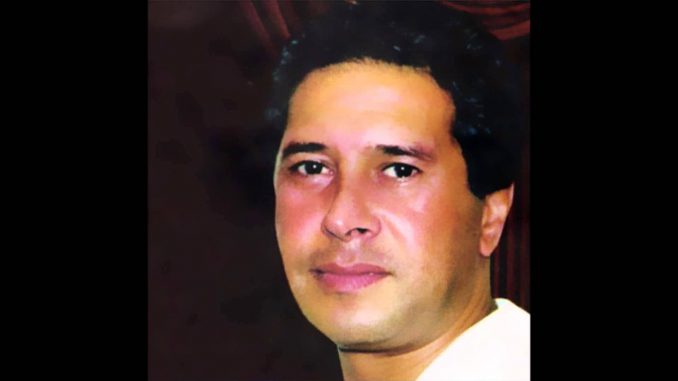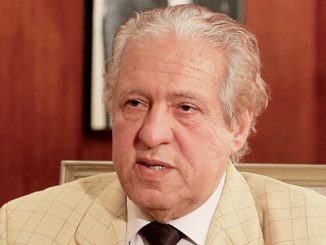
The vast majority of Moroccans love and respect the late Mohammed El Hayani, both artistically and humanely, especially since he died very young, at the time he was at the height of his career. It should also be noted that almost everyone remembers his famous songs “Rahila”, “Men day Bhak” and “Bard wa Sakhoun”.
He is one of the pioneers of Moroccan song and the one who left his mark on its history with his wise choices, his gentle voice, his sensitivity, his humility and his nobility, to the point that he has become an artistic legend. He was the favorite singer of HM the King Hassan II who had nicknamed him the “Moroccan Andalib” and who praised his qualities in front of his friend, the Egyptian artist Abdel Halim Hafez, nicknamed “Al andalib al asmar”.
Born in Casablanca in 1947, Mohammed El Hayyani spent his childhood in Derb Sultan before moving to Agdal in Rabat, where he lived with his older sister Fatna, who was his first supporter. She was the one who helped him enroll at the National Conservatory of Music as soon as he discovered his passion for singing, a passion that emerged from his earliest childhood, leading him to abandon his studies at the primary level.
At the Conservatory, El Hayyani was taught by experienced artists such as Abdelkader Rachdi, who was very impressed by his voice. But it is to the lyricist Ali El Haddani that he owes his official entry to the field of singing. Indeed, it was the latter who wrote the text of his very first song, which Hamid Benbrahim, the famous flutist of the national orchestra, composed.
El Hayyani’s name spread very quickly and he soon became a full member of the “club of the greats”, notably with successful songs such as “Bared wa skhoun”, “A sidi ana horr” or “Waktach tghanni ya Qalbi”, a song he performed in the film “Doumouaaa annadam”, alongside Hammadi Ammor and Habiba El Madkouri.
But his song “Man dai Bahak”, launched in 1968, marked the greatest turning point in his artistic career. It was followed in 1970 by the magnificent “Rahila”, whose words go to the great poet Abderrafii Jawahiri and its composition to Abdessalam Amer. It is this song that undoubtedly put him on the throne of the Moroccan song.
Because he was very attached to the artistic quality of his works, El Hayyani was not very productive. Nor was he a fan of fame or money. And despite the fact that his artistic career lasted for more than 30 years, the audience only remembers a few songs that opened the hearts of Moroccans to him.
Mohammed El-Hayyani died on October 23, 1996, after a long battle with the disease, leaving a deep sorrow in the hearts of his fans, first and foremost King Hassan II, who had covered the costs of his hospitalization in France and who, when the news broke, reportedly said with tears in his eyes: “My son is dead! ».


Be the first to comment